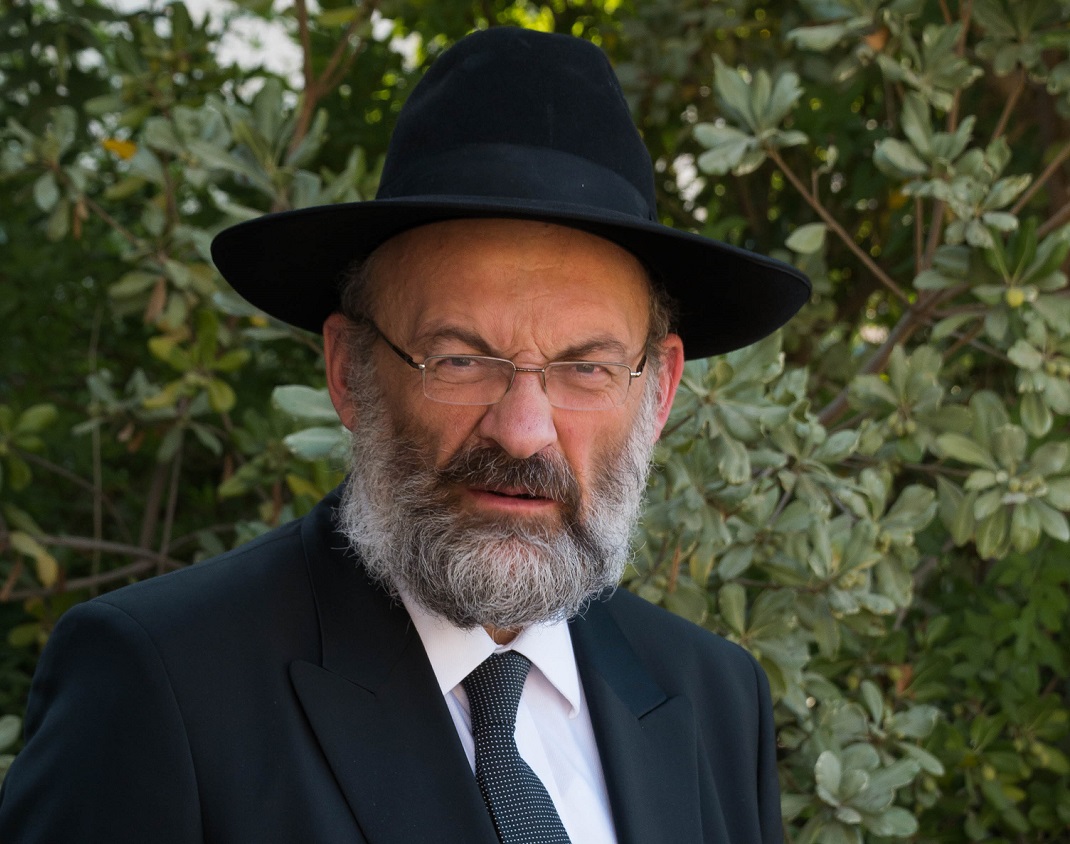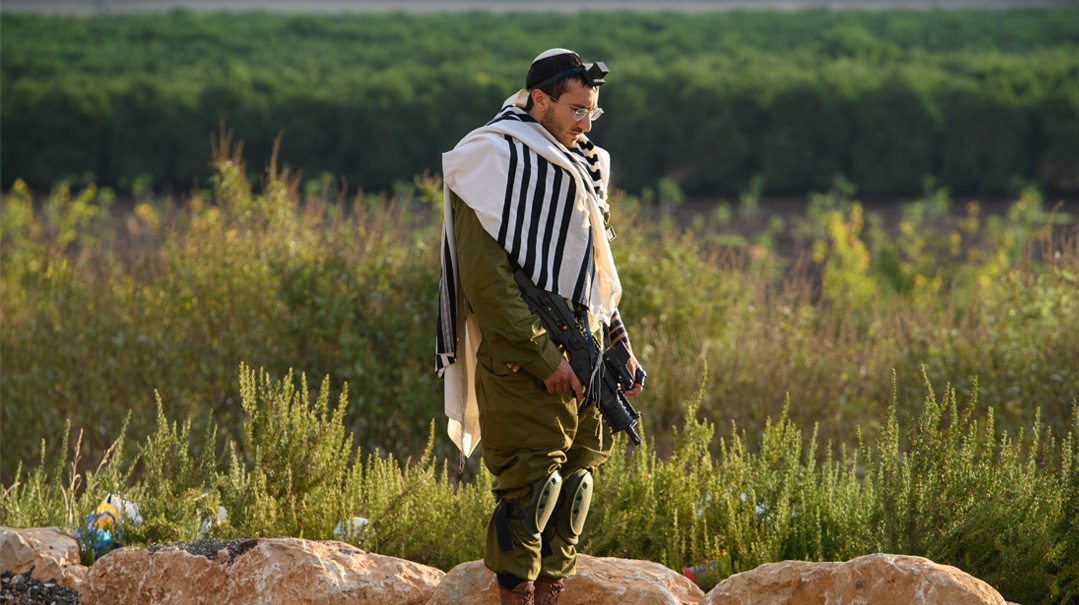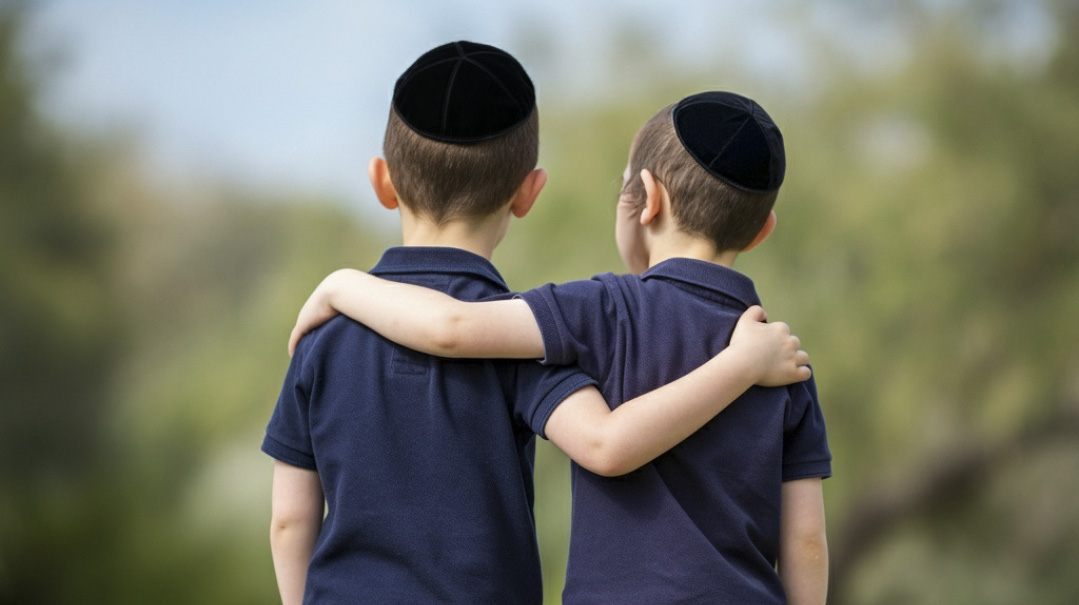Soldiers See Only the Task at Hand

Successful davening and learning in these turbulent times require us to think only about the immediate task at hand

K
lal Yisrael is still reeling from the devastation and horror we witnessed on Shemini Atzeres. We were dealt a withering blow, and as we gird ourselves to confront the evil arrayed against us, we beg Hashem to show us mercy.
And as we weep for the dead, the captives, and the wounded, we ask ourselves some painful questions. Why did this happen? What does Hashem want from us? The confusion these questions arouse compounds our feelings of shock.
The first question — why this happened — isn’t the right question to ask. Hashem is constantly guiding the world toward its purpose, and every event in history plays a role in bringing that to fruition. Undoubtedly, the catastrophe that befell Klal Yisrael on Shemini Atzeres has tremendous significance in Hashem’s plan. If we understood the overall scheme, everything would make perfect sense to us.
But in the absence of nevuah, we can’t begin to grasp even an inkling of Hashem’s plan and how this calamity advances it. We are not meant to contemplate this at all, just to know with firm emunah that everything that happens is for the ultimate good.
There is another aspect of Hashem’s hashgachah, though. Every event, besides playing a role in Hashem’s cosmic plan, also contains a message for us. Hashem speaks to us through what happens in the world. That message doesn’t necessarily explain why the event happened. The role the event plays in Hashem’s plan is far beyond our ability to fathom. But Hashem orchestrates every event in such a way that it communicates something He wants from us.
Sometimes, the message is faint, and we have to listen carefully to perceive it. But this heinous attack on the Jewish People is a blaring message to all of Klal Yisrael that no one could possibly miss.
What we must ask is not why this happened, but what Hashem is telling us. Some people are quick to answer this question, each in their own way. “Hashem wants chizuk in Torah!” “Hashem wants chizuk in tzniyus!” “Hashem wants chizuk in bein adam l’chaveiro!” We all have some area in avodas Hashem that’s particularly important to us, and we’re predisposed to believe that area is the one Hashem demands improvement in.
Other people are shocked into action, and don’t think much about what Hashem is telling us. The suffering around us is like a shot of adrenaline to the Jewish heart, jolting us to do something fast. So we rush to do something grand for Klal Yisrael, without forethought. While our deeds might be commendable, rushing to action stifles sincere reflection. We say to ourselves, “There, I did my part to help Klal Yisrael,” and stop thinking about what Hashem is actually trying to tell us.
To decipher what Hashem truly wants from us requires serious reflection and introspection. But this is no time to sit around in idle contemplation. We’re in the middle of a war, and there’s not a moment to lose.
In an instant, the real-life nightmare last week thrust Klal Yisrael into a fierce battle — one that reaches far beyond Gaza and the brave soldiers fighting to protect the Jewish People. Our enemies attacked Jews because they were Jews. Their attack was on the Jewish People as a whole, and each and every one of us must take part in the war against them. We are all soldiers in this war.
Most of us are not actually on the front line. Our contribution to the war effort is primarily spiritual: to daven and learn Torah to protect the soldiers and all Jews from harm. Chazal tell us that behind every Jewish military victory are the tefillos and Torah of those not on the battlefield. A Jew’s tearful prayers can break through Heaven’s gates even if they’re sealed shut, and every word of Torah is magna u’matzla — it protects and saves.
Knowing our grave responsibility, we try to daven with the greatest kavanah, and learn with tremendous toil and hasmadah. The problem is, we’re all discombobulated. We can’t take our minds off the atrocities, the hostages, the rocket attacks, and the countless bereaved families. These thoughts cloud our minds, and make davening and learning more difficult than ever.
To be a good soldier, we need to fight like one. We need to approach our role in this war like a soldier in battle: with absolute focus on the present operation. Successful davening and learning in these turbulent times require us to think only about the immediate task at hand, and not about what will follow.
The importance of a solid plan of battle is immeasurable. But only a handful of top generals actually make the plans. An ordinary soldier simply fulfills his orders. He doesn’t see the big picture or understand the significance of his task in the grand scheme of things. He sees and knows nothing but what he has to do at this moment. This allows him to focus 100 percent on his task, without confusion and distraction.
We tend to think about the big picture. When we daven, we think about the progression from Pesukei D’zimra to Krias Shema and Shemoneh Esreh, and from one brachah to the next. When we learn, as we read the kashya, we’re already thinking about the teretz. Other times, our minds race ahead to the finish line, thinking about our goal to finish the whole Sefer Tehillim or the masechta. But to win this war, we must focus our minds on the present moment.
When you’re saying Tehillim, just focus on the pasuk you’re saying now. When you daven Shemoneh Esreh, just concentrate on the brachah you’re saying right now. When you’re learning, don’t think about your goal to finish the masechta or even the sugya. Just think, “Right now, I’m learning this line of Gemara for the sake of Klal Yisrael.”
When we do that, we approach our immediate responsibility with the earnestness of a soldier in combat. Every time we push out an irrelevant thought while davening, or resist the temptation to discuss the news with our chavrusa, we’re like a soldier battling the enemy.
That’s what’s demanded of us right now, not big chizukim or lofty goals. Don’t rush out to do something remarkable, like finish Shas in a year. When we think of being a soldier, we think we need to do something grandiose. That’s a dangerous misconception. If every soldier seeks to be a hero who captures headlines, the army is doomed. Every soldier has to fulfill his task, as insignificant or inglorious as it might seem. Some soldiers just take care of the equipment or prepare the food, but their contribution is crucial nonetheless.
A soldier doesn’t know the intricacies of the generals’ plan. All he knows is what he has to do at this moment. But he has to believe that what he’s doing now is an important contribution to the plan’s success. It’s hard for us to see how one brachah, pasuk, or line of Gemara could win the war. But Hashem is an experienced general, and those are His orders for us now. Let’s do our best to focus on the task at hand, and remember that every word of prayer or Torah we utter lays another stone in the path to victory. —
—Prepared for print by Rabbi Eran Feintuch
(Originally featured in Mishpacha, Issue 982)
Oops! We could not locate your form.







